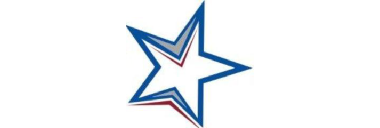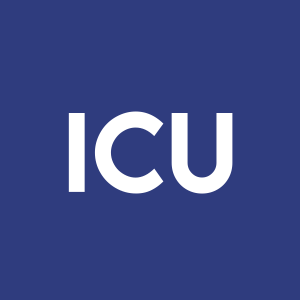SeaStar Medical Projects Multibillion-Dollar Market Potential for its Selective Cytopheretic Device in Initial Target Indications
Rhea-AI Summary
SeaStar Medical (Nasdaq: ICU) estimates a U.S. total addressable market of $25 to $33 billion for its Selective Cytopheretic Device (SCD) across five clinical indications. The company's device, which targets inflammatory cells during continuous renal replacement therapy, has received FDA Breakthrough Device Designation in three indications: adult AKI, hepatorenal syndrome, and cardiorenal syndrome with LVAD. The largest market opportunity is in Cardiorenal Syndrome with no LVAD at $13.1-17.4 billion.
The company recently received FDA approval for QUELIMMUNE™ (SCD-Pediatric) for treating critically ill children with AKI and sepsis. The adult AKI pivotal trial, NEUTRALIZE-AKI, has enrolled 69 out of 200 planned subjects, evaluating 90-day mortality and dialysis dependency as primary endpoints.
Positive
- FDA Breakthrough Device Designation received in three major indications
- Large total addressable market of $25-33 billion across five indications
- Recent FDA approval for pediatric device QUELIMMUNE™
- Clinical trials costs relatively low compared to market potential
- Device can be used without alterations across different indications
Negative
- Adult AKI trial has only enrolled 69 out of 200 planned subjects
- Significant clinical trial costs required for market expansion
News Market Reaction
On the day this news was published, ICU declined 7.11%, reflecting a notable negative market reaction.
Data tracked by StockTitan Argus on the day of publication.
U.S. total addressable market for five initial indications is
REMINDER: Business Update Conference Call begins at 4:30 p.m. Eastern time today
DENVER , Dec. 11, 2024 (GLOBE NEWSWIRE) -- SeaStar Medical Holding Corporation (Nasdaq: ICU), a commercial-stage medical device company developing proprietary solutions to reduce the consequences of hyperinflammation on vital organs, estimates a U.S. total addressable market for its proprietary, patented Selective Cytopheretic Device (SCD) in five clinical indications, subject to U.S. Food & Drug Administration (FDA) approvals, of
The following chart summarizes ranges of the adult SCD total addressable market and estimated clinical trial costs, by indication:
| Clinical Indication | Annual U.S. Patient Population1 | Total Addressable U.S. Market $ in millions2 | Clinical Trial Costs $ in millions |
| Adult Acute Kidney Injury (AKI)3 | 210,000 | 4,700 – 6,300 | 154 |
| Cardiorenal Syndrome with no LVAD5 | 580,000 | 13,100 -17,400 | 5 |
| Adult Acute Respiratory Distress Syndrome (ARDS) | 200,000 | 4,500 – 6,000 | 10 |
| Adult Hepatorenal Syndrome2 | 50,000 | 1,100 – 1,500 | 4 |
| Cardiorenal Syndrome with LVAD2, 4 | 60,000 | 1,400 – 1,800 | 4 |
“The estimated size of these U.S. markets versus our projected clinical trial costs clearly warrant pursuing FDA approvals in these indications. The ability to use the SCD as currently configured, without alteration for each new indication, allows us to cost-efficiently approach the total addressable market. Additionally, we expect future commercial sales for the SCD in adult AKI to help cover clinical trial costs,” said Eric Schlorff, SeaStar Medical CEO. “We have already reached a major regulatory milestone in securing approval for the SCD-Pediatric, branded as QUELIMMUNE™, for treating critically ill children with AKI and sepsis. It is highly unusual for a company to gain approval in a pediatric indication before the adult indication, which we believe provides support for future SCD regulatory approvals.”
The SCD has been awarded FDA Breakthrough Device Designation (BDD) in three of the five indications included in the chart above, namely adult AKI, hepatorenal syndrome and cardiorenal syndrome with LVAD. The SCD was also awarded BDD for chronic dialysis in November 2024. The BDD designation holds numerous benefits including enhanced access to FDA resources resulting in faster development, as well as priority review by the FDA, early access to patients and the potential for differentiated market positioning. The company recently submitted a clinical trial protocol for chronic dialysis to the FDA for review. Feedback from the FDA will provide SeaStar Medical with the information necessary to appropriately estimate the clinical costs and market size for this indication.
Conference Call
As a reminder, SeaStar Medical management will hold a conference call today beginning at 4:30 p.m. Eastern time (1:30 p.m. Pacific time) to discuss business progress and provide updates. Participants can pre-register for the conference call here. Those who pre-register will be given a conference passcode and unique PIN to gain immediate access to the call and bypass the live operator. Participants may pre-register at any time, including up to and after the call start time. Those who do not pre-register can access the live conference call by dialing 866-777-2509 within the U.S. or 412-317-5413 from outside the U.S., and requesting the SeaStar Medical call.
A webcast of the conference call will be available live and archived here. A replay of the call will be available for 48 hours beginning two hours after its completion by dialing 877-344-7529 from within the U.S., 855-669-9658 from Canada or 412-317-0088 from outside the U.S., and entering conference ID 3855739.
Selective Cytopheretic Device
The Selective Cytopheretic Device (SCD) is a patented cell-directed extracorporeal device that employs immunomodulating technology to selectively target proinflammatory neutrophils and monocytes during continuous renal replacement therapy (CRRT) and reduces the hyperinflammatory milieu including the cytokine storm. Unlike pathogen removal and other blood-purification tools, the SCD is integrated with CRRT hemofiltration systems to selectively target and transition proinflammatory monocytes to a reparative state and promote activated neutrophils to be less inflammatory. This unique immunomodulation approach may promote long-term organ recovery and eliminate the need for future renal replacement therapy (RRT), including dialysis.
The SCD-Pediatric device, QUELIMMUNE, is being commercialized following FDA approval for children with AKI and sepsis or septic condition weighing 10 kilograms or more who are being treated in the ICU with RRT. QUELIMMUNE was approved in February 2024 under a Humanitarian Device Exemption (HDE) application, having met the applicable criteria with clinical results showing safety and probable clinical benefit in a limited population of critically ill children with AKI who have few treatment options.
ADULT Acute Kidney Injury Pivotal Trial
The NEUTRALIZE-AKI (NEUTRophil and monocyte deActivation via SeLective Cytopheretic Device – a randomIZEd clinical trial in Acute Kidney Injury) is expected to enroll up to 200 adults with 69 subjects enrolled to date. The trial’s primary endpoint is a composite of 90-day mortality or dialysis dependency among patients treated with SCD in addition to CRRT as the standard of care, compared with the control group receiving only CRRT standard of care. Secondary endpoints include mortality at 28 days, ICU-free days in the first 28 days, major adverse kidney events at Day 90 and dialysis dependency at one year. The study will also include subgroup analyses to explore the effectiveness of SCD therapy in AKI patients with sepsis and acute respiratory distress syndrome.
About SeaStar Medical
SeaStar Medical is a commercial-stage medical technology company that is redefining how extracorporeal therapies may reduce the consequences of excessive inflammation on vital organs. SeaStar Medical’s novel technologies rely on science and innovation to provide life-saving solutions to critically ill patients. The Company is developing and commercializing cell-directed extracorporeal therapies that target the effector cells that drive systemic inflammation, causing direct tissue damage and secreting a range of pro-inflammatory cytokines that initiate and propagate imbalanced immune responses. For more information visit www.seastarmedical.com or visit us on LinkedIn or X.
Forward-Looking Statements
This press release contains certain forward-looking statements within the meaning of the “safe harbor” provisions of the Private Securities Litigation Reform Act of 1995. These forward-looking statements include, without limitation, the ability of the SCD to treat patients with AKI and other diseases; the total addressable market for adult SCD applications including the annual U.S. patient population, cartridge pricing and the number of cartridges used per patient; the ability of SeaStar Medical to gain market share and generate sales with respect to the total addressable market for adult SCD application; anticipated patient enrollment and the expansion of the clinical trial sites; the number of patients and annual sales for the addressable AKI market; the anticipated Medicare and Medicaid reimbursement by CMS for patients enrolled in clinical trials; planned and potential future clinical trials and associated costs; the expected regulatory approval process and timeline for commercialization of our clinical products; and the ability of SeaStar Medical to meet the expected timeline. Words such as “believe,” “project,” “expect,” “anticipate,” “estimate,” “intend,” “strategy,” “future,” “opportunity,” “plan,” “may,” “should,” “will,” “would,” “will be,” “will continue,” “will likely result,” and similar expressions are intended to identify such forward-looking statements. Forward-looking statements are predictions, projections and other statements about future events that are based on current expectations and assumptions and, as a result, are subject to significant risks and uncertainties that could cause the actual results to differ materially from the expected results. Most of these factors are outside SeaStar Medical’s control and are difficult to predict. Factors that may cause actual future events to differ materially from the expected results include, but are not limited to: (i) the risk that SeaStar Medical may not be able to obtain regulatory approval of its SCD product candidates; (ii) the risk that SeaStar Medical may not be able to raise sufficient capital to fund its operations, including current or future clinical trials; (iii) the risk that SeaStar Medical and its current and future collaborators are unable to successfully develop and commercialize its products or services, or experience significant delays in doing so, including failure to achieve approval of its products by applicable federal and state regulators, (iv) the risk that SeaStar Medical may never achieve or sustain profitability; (v) the risk that SeaStar Medical may not be able to access funding under existing agreements; (vi) the risk that third-parties suppliers and manufacturers are not able to fully and timely meet their obligations, (vii) the risk of product liability or regulatory lawsuits or proceedings relating to SeaStar Medical’s products and services, (viii) the risk that SeaStar Medical is unable to secure or protect its intellectual property, (ix) the risk that SeaStar Medical is unable to compete with larger, better capitalized competitors within the total addressable market for our products and product candidates; and (ix) other risks and uncertainties indicated from time to time in SeaStar Medical’s Annual Report on Form 10-K, including those under the “Risk Factors” section therein and in SeaStar Medical’s other filings with the SEC. The foregoing list of factors is not exhaustive. Forward-looking statements speak only as of the date they are made. Readers are cautioned not to put undue reliance on forward-looking statements, and SeaStar Medical assumes no obligation and does not intend to update or revise these forward-looking statements, whether as a result of new information, future events, or otherwise.
Contact:
Alliance Advisors IR
Jody Cain
(310) 691-7100
Jcain@allianceadvisors.com
# # #
1 Estimates of Annual U.S. Patient Population and Total Addressable U.S. Market were derived from Silver SA, Chertow, GM Nephron 2017; 137 (4) 297-301; American College of Physicians, ACP Hospitalist, Coding information from July 2019; Sepanlou, et al. Lancet Gastroenterology & Hepatology, 2020 Mar;5(3):245-266; and Orman, et al JAMA Netw Open. 2019 Oct 2;2(10):e1913673
2 Ranges reflect assumptions regarding cartridge pricing and number of cartridges used per patient
3 FDA Breakthrough Device Designation received
4 Some clinical trial costs have already been incurred
5 LVAD = left ventricular assist device








